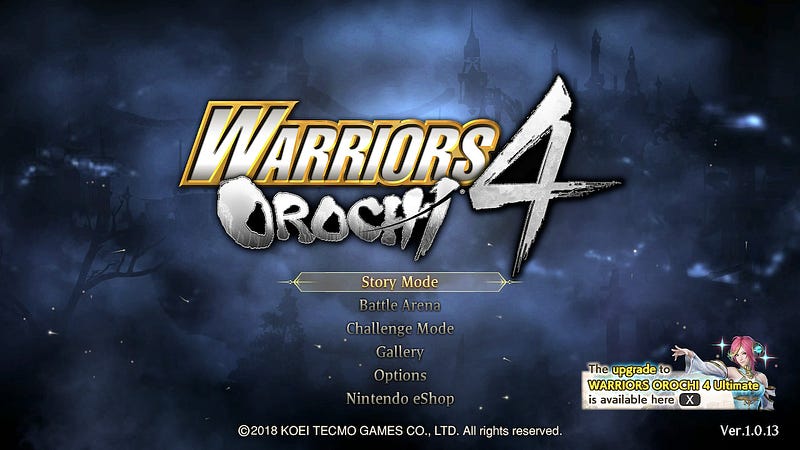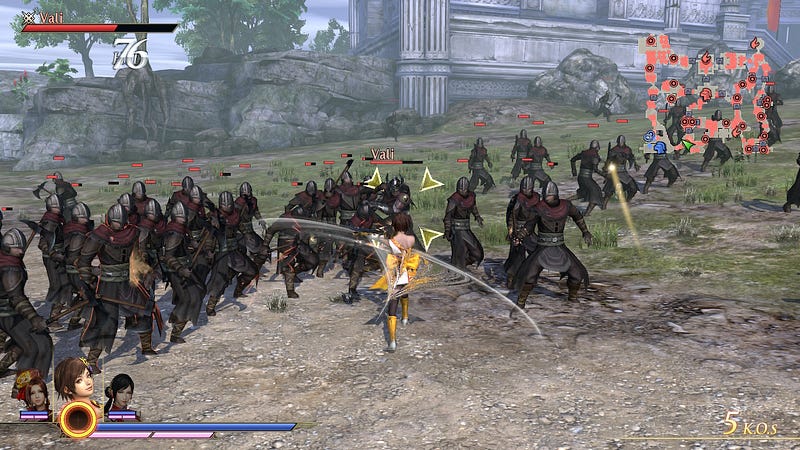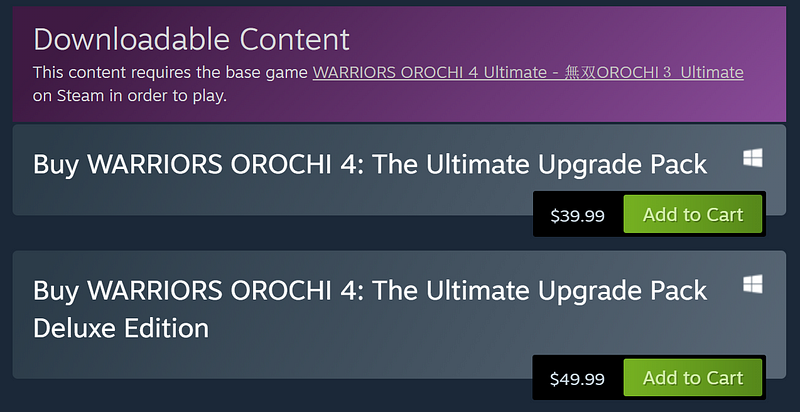Koei Tecmo's Controversial $50 Game Update: A Deep Dive
Written on
The Rise of Expansion Packs in Console Gaming
In the early 2000s, Japanese game publisher Koei popularized the concept of expansion packs on consoles, taking inspiration from the PC gaming model. During the PlayStation 2 era, it became common for PC titles to receive additional content as standalone releases at lower prices. Koei boldly embraced this trend with their 2003 release of Dynasty Warriors 3: Xtreme Legends, which functioned as a standalone expansion featuring unique levels and challenges. Players could merge save data from the original game, enriching their experience with new content.
"This practice has diminished in modern gaming, as expansions are now often sold as overpriced downloadable content (DLC)."
The Transition to DLC: A Costly Shift
As gaming technology evolved, Koei adapted their strategy. Instead of offering traditional expansions, they began to sell DLC at inflated prices. This shift allowed them to maintain profit margins by replacing older versions of games with new editions containing expansion content, effectively pushing previous titles out of the market. Unfortunately, this model has proven to be financially burdensome for dedicated fans.
The Value of Spin-offs: A Comparison
Remarkably, the best value for Koei's DLC doesn't come from their mainline games but from licensed spin-offs. For instance, Hyrule Warriors Legends, developed by Koei's Omega Force team and published by Nintendo, launched its expansion at a fair price of $20, featuring an impressive array of new characters and stages. In stark contrast, Koei's own Warriors Orochi 4 saw its "Ultimate Edition" expansion released in 2020 with a convoluted pricing structure. The new SKU replaced the original game, costing $60, while a Deluxe Edition was priced at $70. Players who owned the original could "upgrade" for $40 or purchase the Deluxe content for $50.

The Questionable Value of the Ultimate Edition
Upon its release, some might assume the Ultimate Edition offered substantial new features; however, much of the content felt more akin to what other companies would typically provide in free updates or less expensive DLC. While it introduced seven "new" characters, their designs were largely recycled from previous titles. Additionally, the Ultimate Edition included only a handful of new stages and a basic challenge mode reminiscent of previous games, which left many feeling underwhelmed.

Koei's marketing tactics further complicated the situation, as the company plastered ads for the Ultimate Edition onto the title screen of the original game—a trend growing increasingly common in the industry. The Ultimate Edition, despite its name, seemed to be more about extracting additional funds from fans than delivering genuine value.
This video explores the financial implications of purchasing Koei Tecmo's expansions and the potential hidden costs associated with their DLC strategy.
Koei's Exploitative Practices: A User's Perspective
As a long-time fan of the franchise, I can attest to the frustration surrounding these pricing strategies. Despite my affection for the series, purchasing the Deluxe Edition felt like a disheartening choice, as it represented an inflated price for what was effectively a patch. In reality, the new content amounted to no more than $20 worth of updates when compared to industry standards. The fact that players were expected to pay nearly full retail for a game from 2018, with minimal enhancements, was disconcerting.

The Pitfalls of Koei's DLC Model
Moreover, Koei's aggressive DLC model has led to extreme costs. With over $200 of additional content not included in the Ultimate Edition, players are left with the impression that the only thing "Ultimate" about this release is its exorbitant price tag.
In this video, we analyze the financial burden of Koei's DLC practices and how they impact player experience.
Koei's Future: A Call to Action
Ultimately, Koei Tecmo's strategy of pricing and content delivery reflects a troubling trend in the industry. While expansions can enhance gaming experiences, Koei's approach has transformed a once-positive innovation into a frustrating money grab. Players must be cautious and avoid supporting practices that exploit dedicated fans. As consumers, we hold the power to influence these companies by voicing our concerns and making informed purchasing decisions.